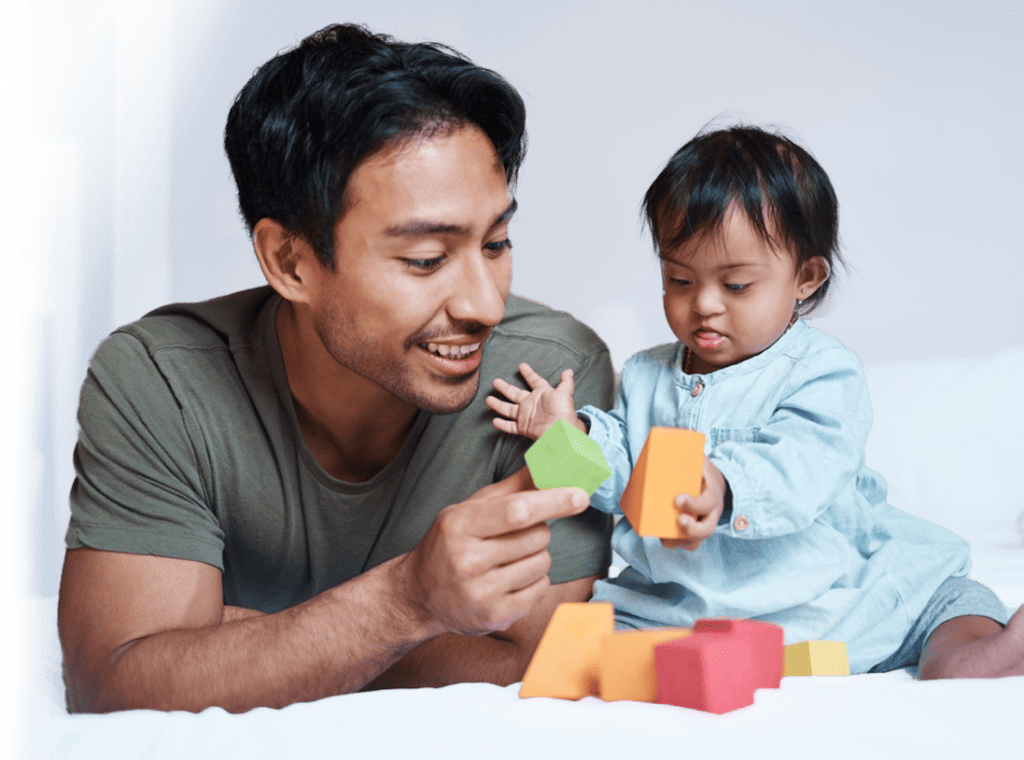When you are exhausted, just getting through the day can be challenging. When you are a parent of a child with a disability and you are exhausted AND your child is exhausted, ‘challenging’ is an understatement.
Many of our children have struggled or continue to struggle with sleep. It’s one of the first shared experiences we have as parents that shapes our relationship with our child: those beginning days with a newborn where night and day blend together. Sleep is powerful. It impacts so many things in our life, from social relationships to work productivity to family dynamics. It’s personal. And it’s often undervalued.
In 1943, American psychologist Abraham Maslow described a 5 level hierarchy of human needs. Sleep is at the bottom of this hierarchy; sleep, along with food and shelter, water and air, is the foundation. Our bodies need sleep to function. Our children need sleep to function. We can still satisfy our needs and make it to the top of the pyramid, but a solid foundation just makes us stronger, and hopefully happier, more productive, and less anxious.
For parents of children with disabilities, the emotional and physical demands required of us do not go away when we don’t meet our own needs. We rise to meet those demands, no matter how tired we are, because we are committed to our children and determined to help them live their best lives.
A few words of wisdom
So, if you are an exhausted parent trying to get through the day while simultaneously troubleshooting your child’s sleep challenges and advocating for their well-being, here are my words of wisdom for you from a once sleep deprived me:
1. Yes, you are your child’s BEST advocate, but you are not your child’s ONLY advocate. Find your team and lean on them. Don’t be too proud to ask for support. No one is expecting you to do this alone and it only makes you stronger to build your advocacy network.
2. Your child needs you as a power source, but you need your own outlet. If you are not plugged in, how can you share your energy with those that need you? Don’t feel guilty for taking time that you need, even in small amounts it can come back tenfold.
3. It feels like you’ll never catch your breath, but you will. The laundry will one day be sorted. Daily routines will flow more comfortably and you’ll find the empty spaces. I know right now feels like forever and you might wonder how other people manage. But other people aren’t living your life. Give yourself a break.
Reference: https://www.simplypsychology.org/maslow.html
Do you know someone who can relate? Share on social and let’s keep talking!



